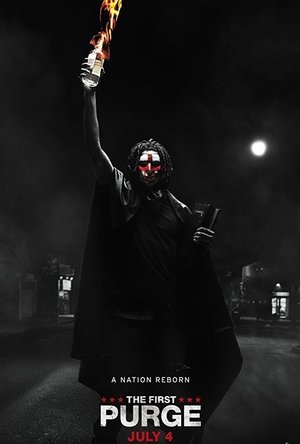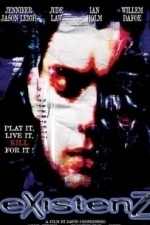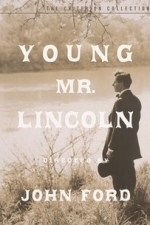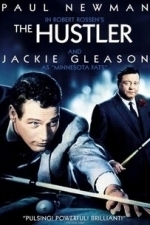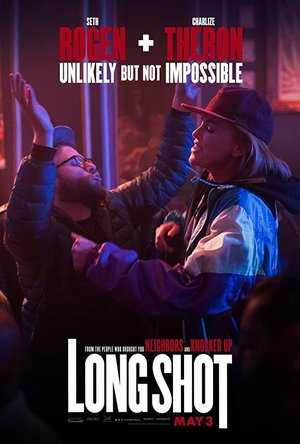
Cruelty-Free
Shopping and Lifestyle
App
Know which brands are cruelty-free while you're on the go! Use this handy shopping guide to find...
Movie Metropolis (309 KP) rated The First Purge (2018) in Movies
Jun 10, 2019
After three films of decent quality in which the second, Purge: Anarchy is the highlight, The First Purge promises to shake up the formula by introducing a prequel into the horror franchise. But does it do enough to stop the series from feeling stale or are we looking at yet another paint-by-numbers horror flick?
No. That’s the short answer anyway. Director Gerard McMurray falls into all the usual horror movie clichés with a film that is definitely Purge-like in its construction, but once again plays it all frustratingly safe.
To push the crime rate below one percent for the rest of the year, the New Founding Fathers of America test a sociological theory that vents aggression for one night in one isolated New York community. But when the violence of oppressors meets the rage of the others, the contagion will explode from the trial-city borders and spread across the nation.
The cast of characters in this instalment is possibly the most unlikeable of the bunch, apart from a few exceptions. Marisa Tomei is hideously underused as the experiment’s creator, Dr. May Updale, when in fact she should and could be the most interesting part of the movie. The rest of the cast are one-dimensional characters that you could cut and paste into any horror film of the last decade. Y’Ian Noel as Dmitri is probably the only one who leaves any lasting impression.
Subtlety has never been the series’ strong point. One of the leaders of the New Founding Fathers is called Donald T for heaven’s sake, but that was always part of its dark charm. It has never been afraid to show us an America that, for now at least, doesn’t feel that too far into the future but the political side-swiping in this instalment bashes us over the head with what feels like a brick. It’s so on the nose.
The premise has always been the best part, and the Achilles heel, of the series and so it continues with The First Purge. Fans waiting to get a really intricate look at how the night of crime came to be will be disappointed as we’re treated to barely 10 minutes of exposition before we’re slung head-first into the same killing-fest that the last three films descended into after their first acts.
This gets old quickly, even more so in this instalment as the repetitive jump scares come thick and fast with uninspiring camerawork, dreadful dialogue and lethargic kills. The use of contact lenses to create some striking neon visuals aren’t enough to lift anything in the film above average.
Thankfully, the final act in a dimly lit tower block shows the audience the type of film it could have been. Slickly shot and nicely styled, it’s a much-improved finale that is only let down by some truly dreadful CGI blood splatter. However, the use of strobe lighting is an inspired choice in this sequence as we follow two groups of people each trying to dispatch the other.
Unfortunately, this highlight isn’t enough to lift the rest of The First Purge above the mundane. Where the first in the series was a film testing the waters regarding its premise and the second improved on that ten-fold taking the action out onto the streets, this tries to use a hybrid of both but it comes across as stale as a ten day old loaf.
The pacing too is an issue. The first 20 minutes or so are excruciatingly slow as the film tries to set-up as many of its plot-points as possible. Now, 20 minutes might not sound too bad, but this is a 97 minute film – that’s a fifth of the time gone with nothing achieved.
If we must get a fifth film, and from the box-office figures, it bafflingly looks like we will, all we can do is hope they take the cheap jump scares and replace them with a thrilling look at the people who brought the purge to life in the first place. Until then, save your money and wait for the network premiere when it comes to television in a couple of years.
When the best part of your film is the purge announcement that has featured in every instalment, you know you’ve run into some trouble.
https://moviemetropolis.net/2018/07/12/the-first-purge-review-yet-another-wasted-opportunity/

Voice Answer Lite
Business and Reference
App
Voice Answer gives answers on many topics and can assist you with several tasks, all voice...
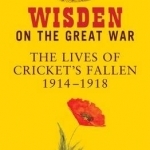
Wisden on the Great War: The Lives of Cricket's Fallen 1914-1918
Book
Readers of the 1917 Wisden Cricketers' Almanack were advised by the editor, Sydney Pardon: "Its...

Super KO Boxing 2 for iPad
Games and Entertainment
App
FREE TODAY ONLY!!! The most outrageous arcade-style boxing game for the iPhone and iPod touch is...

Loan and mortgage calculator - MarkMoney
Finance and Business
App
MarkMoney is a unique tool to calculate loans or mortgage loans in just a few steps or to prepare...
Andy K (10823 KP) rated Existenz (1999) in Movies
Sep 23, 2019
Unfortunately, her party was rudely interrupted by a would-be assassin who wants to put an end to Geller before the game is released. Wounded but not executed, her fate is given to be marketing assistant who has never played a game in his life. The two escape and begin a road trip like no other trying to navigate their situation and figure out who they can trust.
The game novice, Ted Pikul, soon gets himself a "port" so he can join Gellar in the game and to also ascertain whether her main controller hub was severely damaged in the attempt on her lie. Once jacked in, he begins to slowly morph into a more submersive version of the same gradually losing control of himself an becoming his in game character.
The other "participants" they meet serve to enhance the game experience either with conflict or assistance, but it is hard to tell which side everyone plays for. The two become passionate for each other, but still are unable to comprehend whether their feelings are real or just part of the game.
They need to figure out how to finish the game so they can return back to reality.
The last of David Cronenberg's "Body Horror" films before he took his career in a different direction in the 2000s with films like "Eastern Promises" and "A History of Violence", eXistenZ is one truly wild and unique ride. If you have seen some of his other film in the genre like "The Fly" or "The Brood" you would be used to the over-the-top gore, brutality and strange way of storytelling he has made his career.
His characters are flawed, but motivated and that is why you are interested in their situation and go along with them. This film has some remarkable visceral, macabre elements that make it extremely unique, which is why you watch a movie like this. The internet was only a few years old in 1999 and games like World of Warcraft were still years away; however, this film underscores the dangers of becoming too close to the online world and the dangers it could cause.
At many points during the film, you wonder whether you are still within the game itself similar to watching a "Nightmare on Elm Street" film and wondering if you are still dreaming.
Jennifer Jason Leigh has never really gotten the respect she deserves. Whether in the recent "The Hateful Eight" or in films like "Dolores Claiborne" or "Single White Female" she has shown longevity and the ability to play complex, sometimes unlikable characters with the charisma and charm. I liked the fact she was a female game designer, leading in her field, in 1999 when there were probably not many like her at the time.
This film will keep you guessing all the way to the end and even leave you to interpret what you have just seen as the credits roll.
Easily recommended for gruesome horror fans.
Allison Anders recommended Young Mr. Lincoln (1939) in Movies (curated)
Jeff Nichols recommended The Hustler (1961) in Movies (curated)
Bob Mann (459 KP) rated Long Shot (2019) in Movies
Sep 28, 2021
#Punching refers to an in-family joke….. my WhatsApp reply to my son when he sent me a picture of his new “Brazilian supermodel girlfriend” (she’s not). Bronwyn is now my daughter-in-law!
Similarly, the ‘out-there’ journalist Fred Flarsky (Seth Rogan) has been holding a candle for the glacial ice-queen Charlotte Field (Charlize Theron) for nearly twenty years. At the age of 16 she was his babysitter. Always with an interest in school issues, she has now risen to the dizzy heights of secretary (“of State”) to the President of the United States (Bob Odenkirk). With Charlotte getting the opportunity to run for President, fate arranges for Fred to get hired as a speechwriter on the team to help inject some necessary humour into Charlotte’s icy public persona. But in terms of romantic options, the shell-suited Fred is surely #punching isn’t he?
A rare thing.
Getting the balance right for a “romantic comedy” is a tricky job, but “Long Shot” just about gets it spot on. The comedy is sharp with a whole heap of great lines, some of which will need a second watch to catch. It’s also pleasingly politically incorrect, with US news anchors in particular being lampooned for their appallingly sexist language.
Just occasionally, the humour flips into Farrelly-levels of dubious taste (one “Mary-style” incident in particular was, for me, very funny but might test some viewer’s “ugh” button). The film also earns its UK15 certificate from the extensive array of “F” words utilized, and for some casual drug use.
Romantically, the film harks back to a classic blockbuster of 1990, but is well done and touching.
Writing and Directing
The sharp and tight screenplay was written by Dan Sterling, who wrote the internationally controversial Seth Rogen/James Franco comedy “The Interview” from 2014, and Liz Hannah, whose movie screenplay debut was the Spielberg drama “The Post“.
Behind the camera is Jonathan Levine, who previously directed the pretty awful “Snatched” from 2017 (a film I have started watching on a plane but never finished) but on the flip side he has on his bio the interesting rom-com-zombie film “Warm Bodies” and the moving cancer comedy “50:50”, also with Rogan, from 2011.
Also worthy of note in the technical department is the cinematography by Yves Bélanger (“The Mule“, “Brooklyn“, “Dallas Buyers Club“) with some lovely angles and tracking shots (a kitchen dance scene has an impressively leisurely track-away).
The Cast
Seth Rogen is a bit of an acquired taste: he’s like the US version of Johnny Vegas. Here he is suitably geeky when he needs to be, but has the range to make some of the pathos work in the inevitable “downer” scenes. Theron is absolutely gorgeous on-screen (although unlike the US anchors I OBVIOUSLY also appreciate her style and acting ability!). She really is the Grace Kelly of the modern age. She’s no stranger to comedy, having been in the other Seth (Macfarlane)’s “A Million Ways to Die in the West“. But she seems to be more comfortable with this material, and again gets the mix of comedy, romance and drama spot-on.
The strong supporting cast includes the unknown (to me) June Diane Raphael who is very effective at the cock-blocking Maggie, Charlotte’s aide; O’Shea Jackson Jr. as Fred’s buddy Lance; and Ravi Patel as the staffer Tom.
But winning the prize for the most unrecognizable cast member was Andy Serkis as the wizened old Rupert Murdoch-style media tycoon Parker Wembley: I genuinely got a shock as the titles rolled that this was him.
Final thoughts.
Although possibly causing offence to some, this is a fine example of a US comedy that delivers consistent laughs. Most of the audience chatter coming out of the screening was positive. At just over 2 hours, it breaks my “90 minute comedy” rule, but just about gets away with it. It’s not quite for me at the bar of “Game Night“, but it’s pretty close. Recommended.
